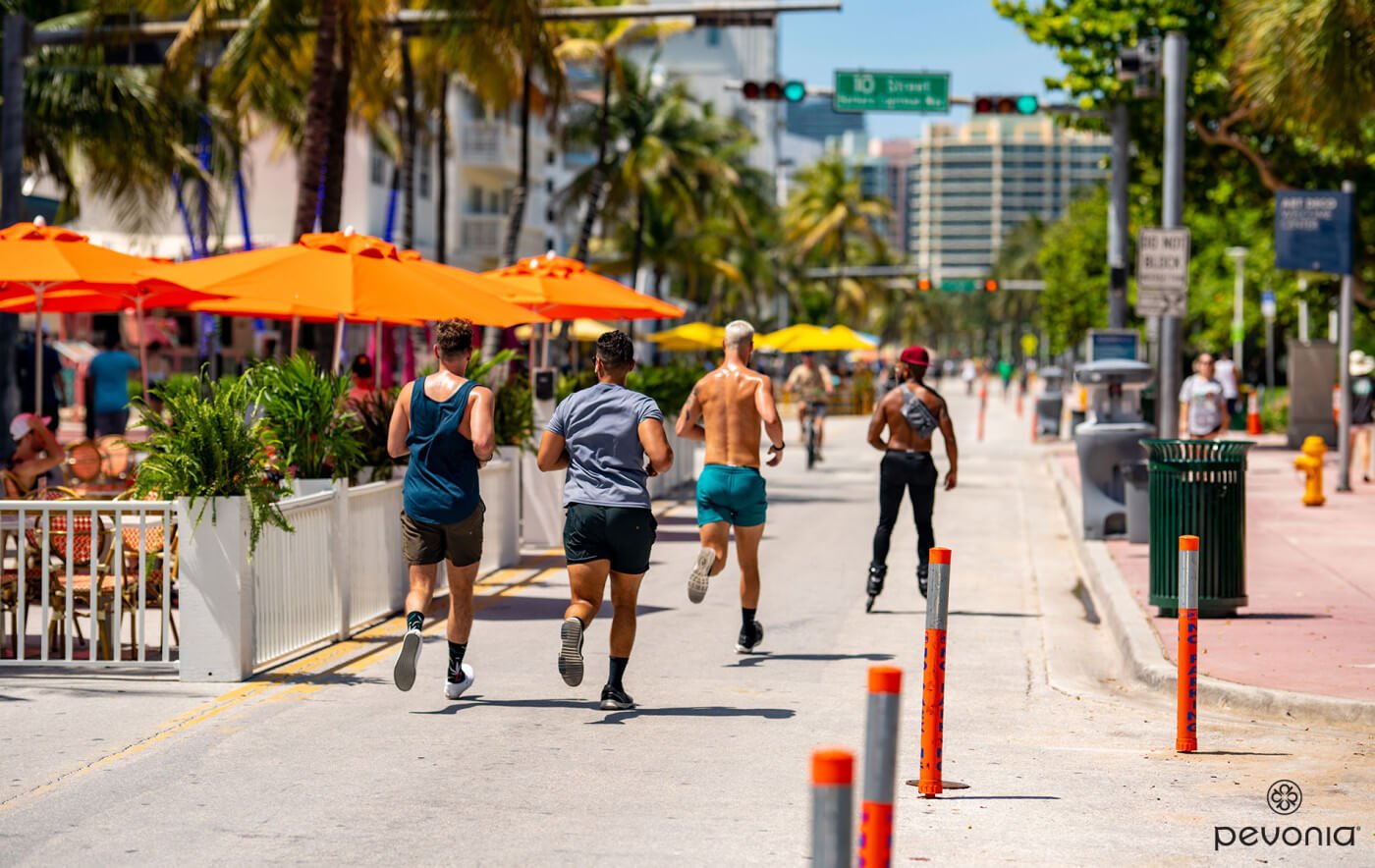
How Exercise Improves Sleep and Why It's a Holiday Essential
Exercise is proven to improve our sleep quality, stress levels, and overall health. To look and feel radiant at festive gatherings, we cannot stress enough the importance of exercise and physical fitness for getting enough sleep and optimal skin health. While quality skincare can help you fake a good night’s sleep occasionally, there is no getting around the science backed studies that show lack of exercise equals mounting stress levels, poorer sleep quality, sour moods, low energy, and the resulting dull, lackluster skin. Yet, sometimes, gearing up to follow through is challenging. While it may seem like you do not have time to exercise amidst the seasonal hubbub, if you want to sail through holiday festivities rested, with a modicum of serenity, and a glowing appearance, you do not have time not to.
Exercise Improves Mental Health
Let us examine how exercise affects the brain to make it work for your sleep and overall wellness. It triggers the release of endorphins, chemicals that reduce anxiety, depression, inflammation, pain, and stress while amping up brain activity, moods, self-esteem, and, potentially, immunity, memory, and cognitive function. The improved stress levels and sleep you get from exercising help stave off stress-related skin flare-ups and hair loss due to stress. How exercise reduces stress is quite simple. It boosts endorphins, our brain’s feel-good neurotransmitters, and other natural brain chemicals (including endogenous cannabinoids!), enhancing our sense of well-being and overall health.
Exercise Indirectly Improves Sleep Quality
- It helps control weight – Approximately 60% of sleep apnea cases are tied to obesity, with weight loss helping decrease sleep apnea symptoms that affect sleep quality.
- Wrap it up early – Exercise energizes brain activity, increases blood flow, and elevates core temperatures. Wrap it up one or two hours before bedtime to allow your mind and body time to downshift into sleep mode.
- Exercise bonuses – We are more inclined to stick to our dietary guns when we exercise. With unhealthy foods, sugar consumption and aging closely tied together and moving your body and a healthy diet working in tandem, it just makes sense!
- Committing to one helps the other – More exercise equates to better sleep, and better sleep means more energy to follow through with workouts. This healthy sleep-exercise feedback loop increases the odds that you will reap the benefits of the other!
Here are practical tips to implement how exercise improves health, sleep, and quality of life:
- Get moving with cardio – Aerobic exercise is non-negotiable if you battle insomnia, rarely awaken refreshed, or have sleep apnea. It reduces the time it takes to nod off, called sleep onset, improving sleep quality, and reducing daytime sleepiness to help power you through holiday shopping.
- Easy does it – For brain-rejuvenating deep sleep, 30 minutes of moderate-intensity aerobic exercise is the optimal sweet dream spot! Instead of long runs or high-intensity workouts, try water aerobics, bike riding, dancing, skating, walking, hiking, doubles tennis, or mowing the lawn. If you can move and talk, you are on the right track!
- Try morning workouts – A.M. exercise may help stimulate a melatonin release earlier in the evening to prompt you to hit the hay earlier.
- Stick to daily exercise – It takes six months to realize the better sleep benefits. (Sorry, a few sweat sessions once in a while will not make you a sleep master!)
- Add resistance exercises – Push-ups, sit-ups, and weightlifting to not only build muscle and strength but ease symptoms of anxiety and depression that detract from quality sleep.
- Strike a pose – Studies indicate that those over 60 and women with sleep challenges and type 2 diabetes can improve their sleep quality with a regular yoga practice.
- Breathe deeply – Breathing exercises before bed are found to usher in a better night’s sleep! Just breathe in, hold, and exhale your way to lower blood pressure and a calmer, more relaxed body.
- Stretch it out – Stretching helps relieve muscle tightness and boosts blood flow, helping you power down. It is even found to increase rapid eye movement (REM) sleep.
- Get a sleep hygiene routine – For holiday stress, muscle tension, and achiness, pair our De-Stress Escape Aromatic Oil featuring Lavender Essential Oil shown to calm and increase slow-wave and deep sleep, with the topical Marine Magnesium, Tension Relief Gel for serious slumber. Unwind with the Lavender-infused natural bubble bath and body moisturizer. But, if you prefer citrus (and your partner is willing!), ask them to massage you with the Micro-Emulsified Massage Oil Anti-Stress with relaxing orange essential oil.
Lastly, as poor sleep and hair thinning and skin disorders are intricately linked, doesn’t 30 minutes of cardio to get better rest seem like a small price to pay? To counteract mounting stress levels and busy holiday schedules, getting moving is a no-brainer for tranquil beauty sleep that will leave you looking and feeling your best this holiday season!
